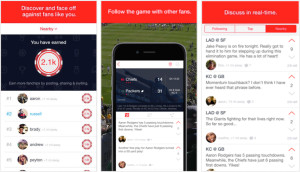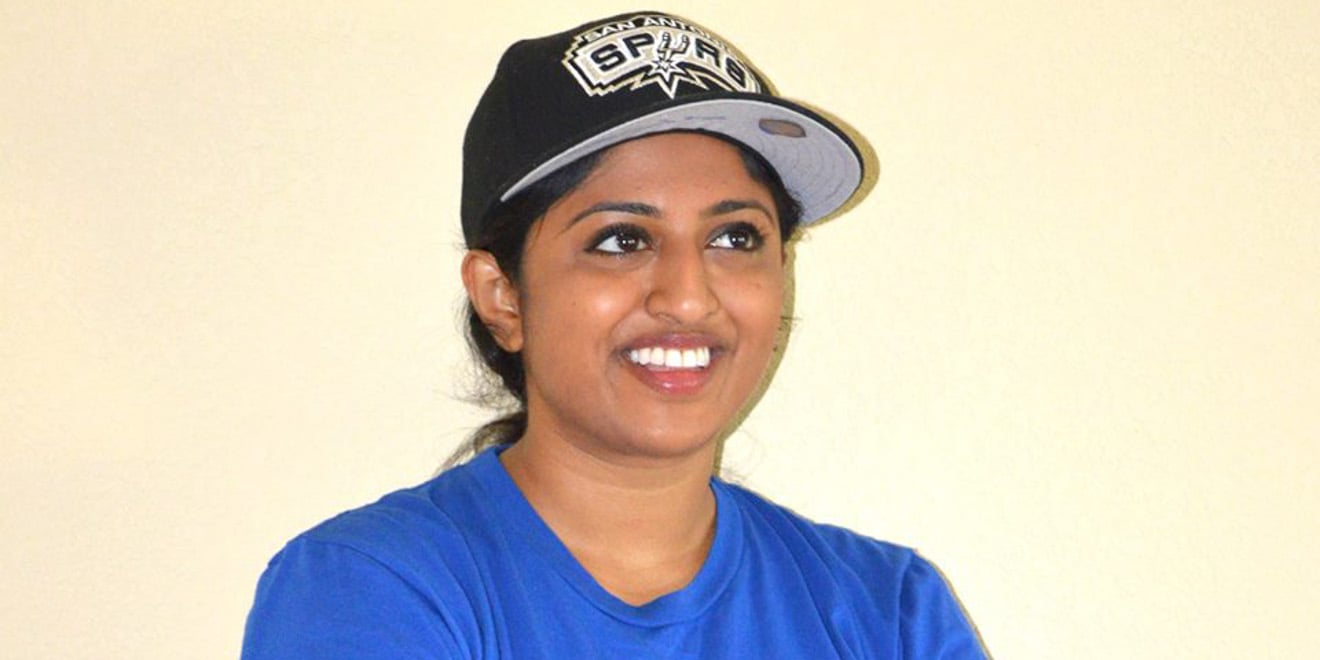June 20, 2013 was a devastating day for Swetha Prabhakar.
That was the night that, after blowing three series leads, the San Antonio Spurs lost in Game 7 of the NBA Finals to LeBron James and the Miami Heat.

But the loss hit home in more than one way for Prabhakar, who has been a lifelong Spurs fan despite growing up in the Bay Area.
When she arrived at work the following morning, she had wanted someone with whom she could commiserate about the tragedy of the Finals loss. Instead, people were either apathetic about the results from the night before, or they teased her for her beloved team’s loss.
Prabhakar knew it didn’t have to be this way.
“I thought, there’s so many Spurs fans in the Bay Area — I’m sure they all feel just as bummed as I do. Why is there no space for us right now for us all to be able to communicate and meet up and have conversations about our favorite players?”
And so in typical Stanford-student-or-alum fashion, Prabhakar sought to not only find a solution to her problem, but also create one.
After graduating Stanford in 2012 with a degree in MCS and a master’s in MS&E, spending two years as a data scientist at Facebook and dedicating hours upon hours poring over sports statistics, Prabhakar finally came up with her solution: a smartphone app, which she would name Fanvana, dedicated to improving the sports-fan experience.
As a student at Stanford, Prabhakar recognized that the Farm was home to numerous sports fans from all over the country. Nevertheless, she found it difficult to discover and meet up with other sports enthusiasts, especially those who shared her favorite teams, across campus.
As an undergrad, Prabhakar took a class called “The Mathematics of Sports,” which paired together her passions for statistics and sports. For the class, she predicted the outcome of the 2011 NBA Playoffs using regular season data and, much to her dismay, guessed that the Memphis Grizzlies would upset the top-seeded team, her San Antonio Spurs.
“It’s really interesting to see that there are indicators in historical information or science that you can pull out of past events to predict future events,” she said.
While working as a data scientist, Prabhakar started to scrape together and analyze data in preparation for her Fantasy Basketball League team. Wanting to do something more with her findings other than just applying them to predictions, she started a blog — the original Fanvana — in which, every few weeks, she would look at any interesting data she could get her hands on about a specific team, but not necessarily for prediction purposes. Instead, she sought to develop strategies based on historical data that could be used to improve a team’s performance.
After a while, ESPN and SB Nation picked up on her blog and started sending her requests on teams and players to look into. One of such requests was to do an analysis on Spurs small forward Kawhi Leonard and how he played with different lineups of his teammates. The post was later syndicated by “Pounding the Rock” on SB Nation and picked up a lot of traction on the web.
Not to mention that later that year, Leonard was named the NBA Finals MVP.
Though Prabhakar’s voice had been heard in some capacity, she knew the fan experience could still be improved for those who didn’t have a blog or a huge following on social media.
“It felt like it was a lot of work just to engage with other Spurs fans,” she said. “So I was like, why is the fan experience so broken? Why do I have to leverage these platforms in order to get my voice heard?”
This is where Fanvana comes in.
Fanvana provides sports fans a platform on which they can have conversations with each other — by posting their thoughts and commenting on or sharing others’ — during and even outside of live games.

“I’m a firm believer in giving fans the platform and foundation to do really cool things,” Prabhakar said. “Some of the content I’m seeing on the app and some of the analyses that fans are drawing — they may not be statistics, some of them are just observations, but I think some of them are just more intelligent than some of those from announcers that you’d hear during Monday Night Football or some other big sporting event.”
While the short-length posting aspect of Fanvana draws off of what’s successful about Twitter (and like on Yik Yak, the posts can be upvoted), fans don’t necessarily have to follow other each other to hear what they have to say. While that follower-based component does exist, the app’s location-based feature show users what people are saying in the area around them.
In this way, fans can be heard more so than if they simply post something on Twitter or Facebook, where they might not have followers or friends who care about sports or who want to engage in conversations about games.
“I want every fan to have an equal voice,” Prabhakar said.
While the conversations usually take off during games, the app also provides fans with live scores, stats and play-by-play updates of their designated favorite teams, which they can use as they follow the game and interact with other fans.
“I think the really exciting thing about sports is the fan-to-fan interaction and communication,” Prabhakar said. “I think there are some really interesting conversations that fans have, and if I can use analytics to help improve those conversations, that could be a bigger value add.”
While the industry of sports analytics has taken off in the early 21st century, most analysts focus how to use data to predict outcomes and sometimes to help improve performance. But for Prabhakar, there are still untouched areas of analytics that can tie together what happens on the court or field and how people react to it.
“Not only are people excited about analytics for players and for improving performance, people are starting to understand how analytics touches everything and influences a lot of key areas,” Prabhakar said. “Sometimes it’s about personalization, which is what we do at Fanvana.”
So as the Spurs seek to win their sixth NBA Championship this upcoming season, Prabhakar knows that whether the team wins the title or falls short, she’ll go through it all with a group of Spurs fans by her side — and on the app.
Starting this Thursday, October 1st, Fanvana is kicking off Stanford’s very own Fan Battle. Each week, teams of up to five students compete against one another for the most fanchips. Download Fanvana on your iPhone or Android device and sign up here.
Contact Alexa Philippou at aphil723 ‘at’ stanford.edu.
